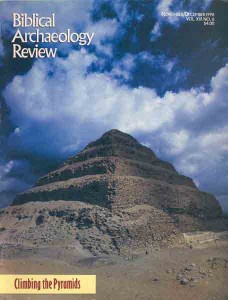How to Break a Scholarly Monopoly: The Case of the Gospel of Thomas
BAR has repeatedly urged that photographs of all unpublished Dead Sea Scrolls be published immediately so that—after 35 years—these texts will be available to all scholars.a An American foundation has offered $100,000 to undertake this project.b The scholars who control the texts, however, have firmly rejected this proposal. They argue that if these photographs were made available to everyone, no one would undertake the time-consuming, often tedious work of preparing a comprehensive editio princeps with full notes and commentary. The work that would be done, they say, would be inferior, containing errors that would go uncorrected for centuries, thereby misleading endless numbers of scholars who would use these second-rate editions. Better to wait, they tell us, even if it takes two or three generations, for first-class editions with full apparatus.
It is difficult to test this argument. Presumably, even though this is not the view of most scholars outside the Dead Sea Scroll team of editors, we are supposed to accept the father-knows-best judgment of the team “experts.”
Yet there is a comparison. Something like this has happened before. It is instructive to look at another very similar case.
Already a library member? Log in here.
Institution user? Log in with your IP address.

